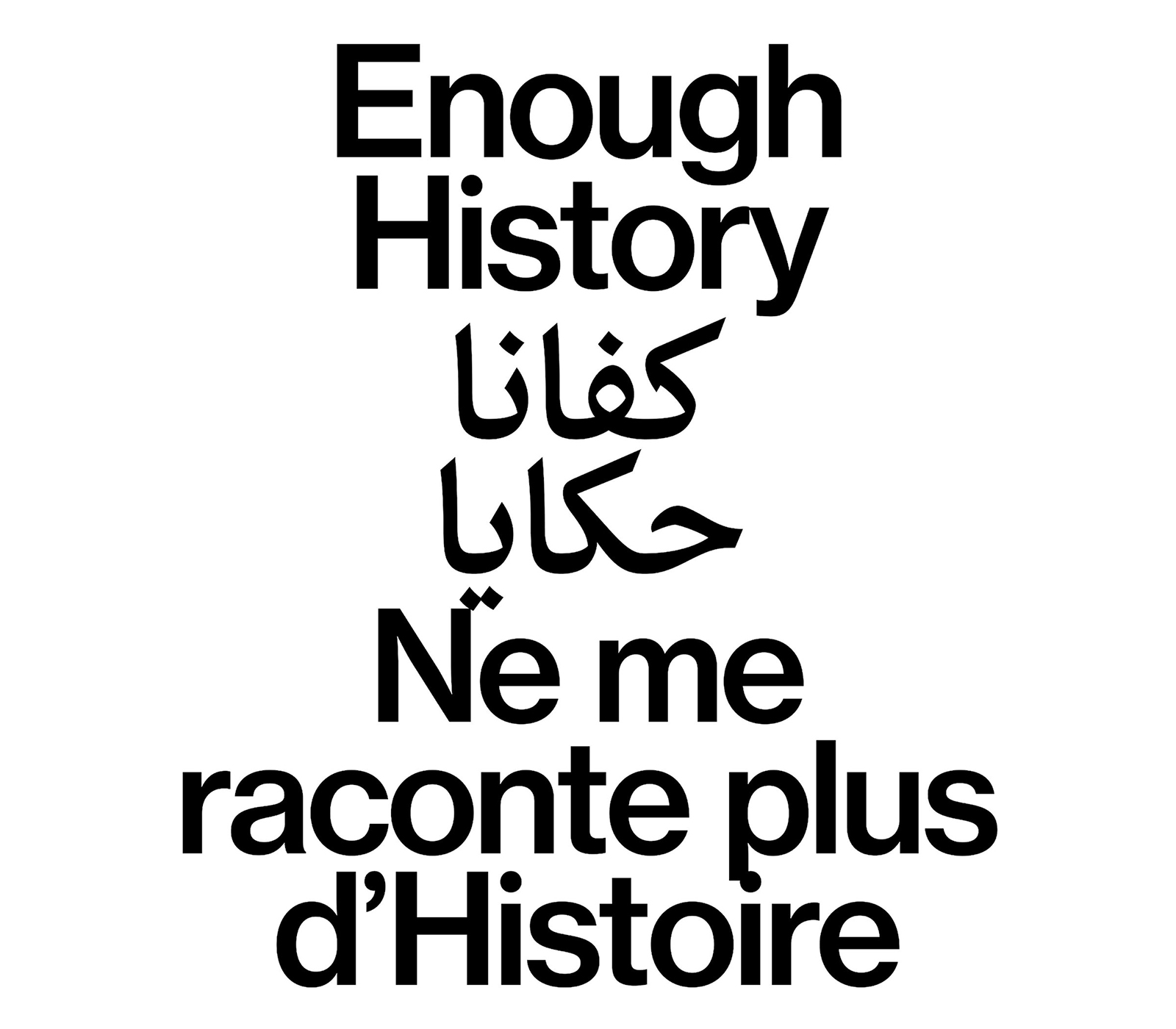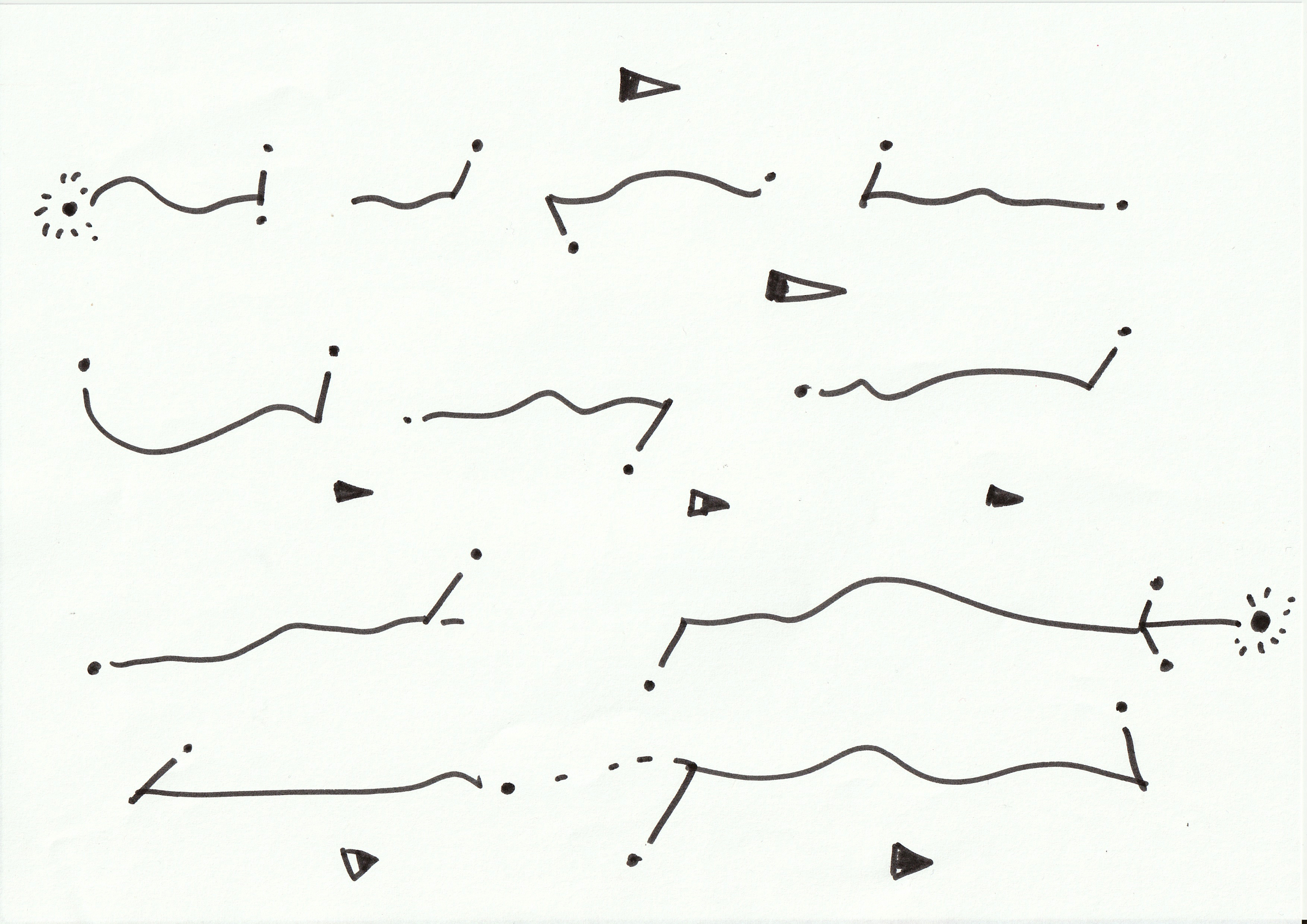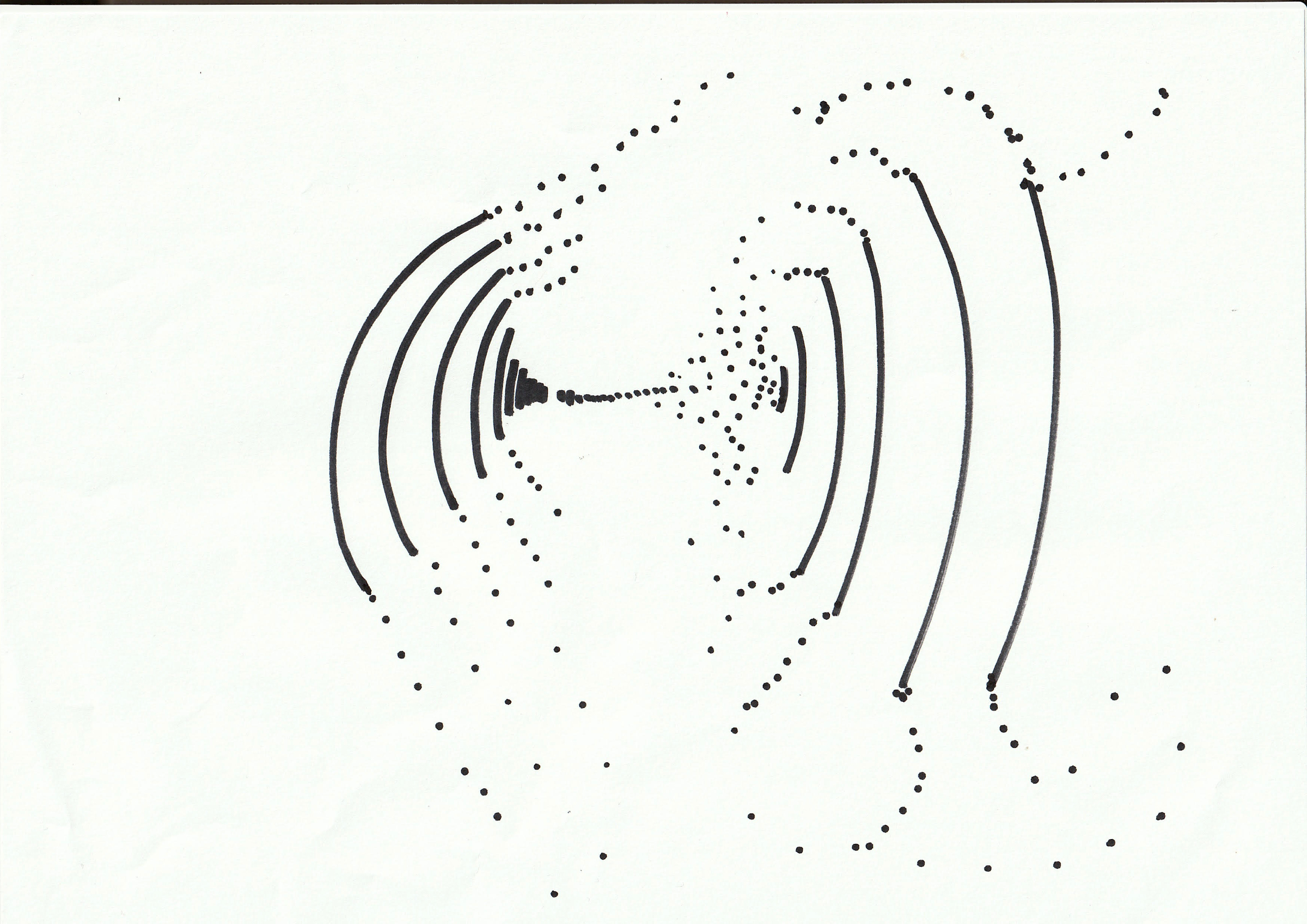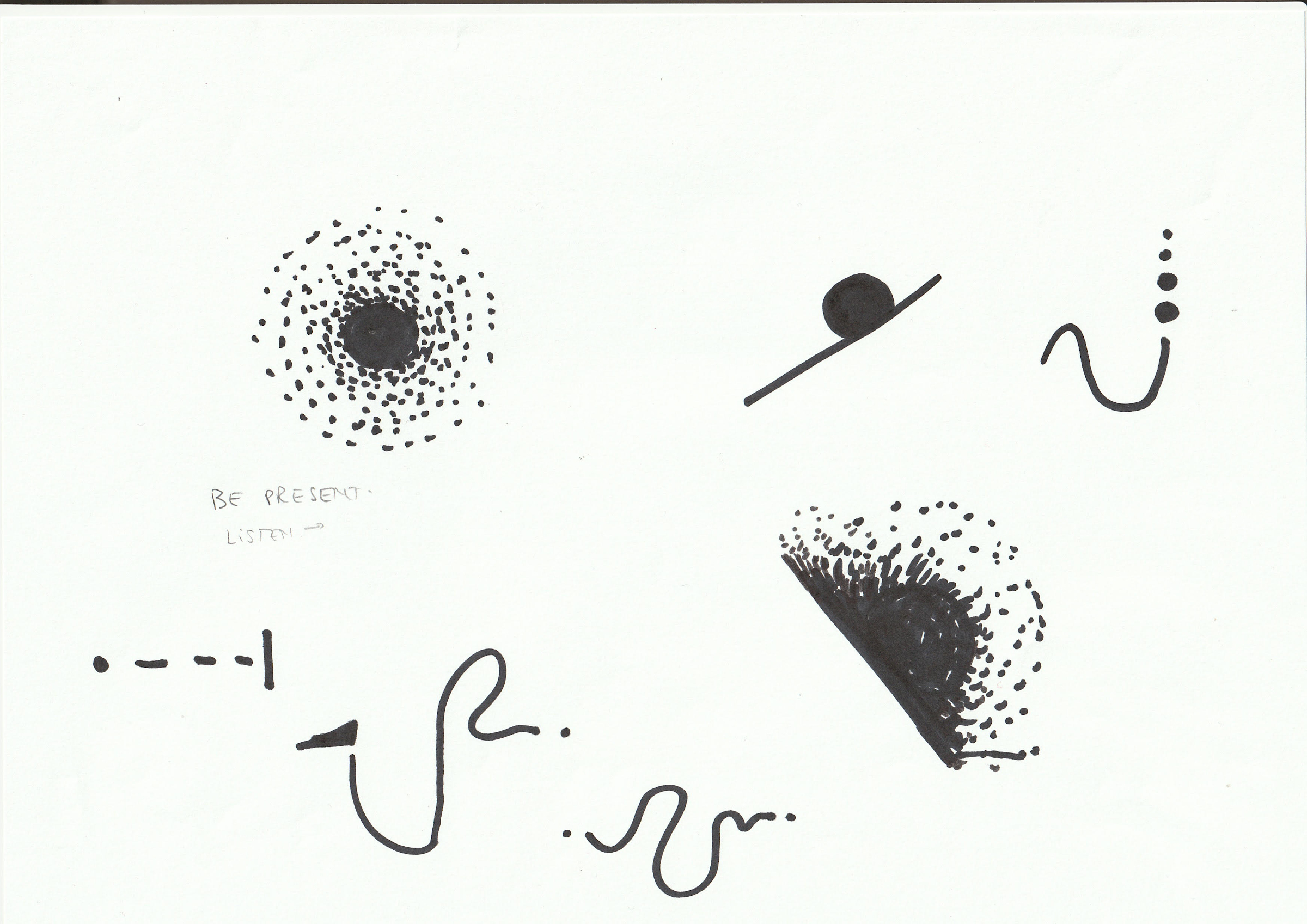
Thursday November 3 at 6pm
Potential h/Histories
Online conversation with Ariella Aïsha Azoulay
In her book Potential History: Unlearning Imperialism (Verso 2019), scholar of political theory and photography Ariella Aïsha Azoulay offers various tactics in order to refuse the narrative order imposed by the dominant, western onto-epistemological framework; and craft “nonimperial grammars”. As she writes: “Unlearning imperialism involves different types of “de-,” such as decompressing and decoding; “re-,” such as reversing and rewinding; and “un-” such as unlearning and undoing. (…) Such rehearsals in nonimperial political thinking and archival practice are not undertaken in preparation for an imminent day of reckoning, but rather as a mode of being with others differently.”
This conversation with Ariella Aïsha Azoulay inaugurates Qalqalah قلقلة‘s Research Affiliation with Tanzquartier and allows us to sketch some of the theoretical and methodological questions that we would like to enact during the rest of the program.
Ariella Aïsha Azoulay, professor of Modern Culture and Media and of Comparative Literature, Brown University, film essayist and curator of archives and exhibitions. Selected books: La résistance des bijoux. Contre les géographies coloniales (Ròt-Bò-Krik, 2023); Potential History: Unlearning Imperialism (Verso, 2019); Civil Imagination: The Political Ontology of Photography (Verso, 2012); exhibitions: Errata (Tapiès Foundation, 2019, HKW, Berlin, 2020), Enough! The Natural Violence of New World Order, (F/Stop photography festival, Leipzig, 2016); and films: Like a jewel in the hand (2022) and Un-documented: Undoing Imperial Plunder (2019).
The recording of the conversation can be viewed here.
Thursday December 15 at 6pm
An infrastructural investigation of a worldly future
Film screening and conversation between Mohamed Abdelkarim (artist) & Salma Mochtari (curator)
In Mohamed Abdelkarim’s recent work, fragmented fiction-narratives complicate the relationship between both notions of body and performativity by revisiting historical events and speculating future crises. He approaches moving image as a performative practice through which dissident bodies and unreliable stories come up against geopolitical infrastructures. Following the screening of selected short films, a conversation will take place between Mohamed Abdelkarim, curator and researcher Salma Mochtari (Qalqalah قلقلة) and the audience.
Mohamed Abdelkarim is a performer, filmmaker, and researcher. He considers performance as a research method and a practice through which he produces texts and images. He employs and reflects on performative acts like narrating, singing, detecting, doing, fictioning, and recently, speculating. His current umbrella project focuses on the agency of the landscape as a witness of “a history we missed and a future we did not attend yet”. He is currently Ph.D. candidate at the Akademie der bildenden Künste in Vienna.

Tuesday January 17 from 10am to 1pm
How (Not) to Disappear in Translation
Workshop with Virginie Bobin
‘Interpreters are not used to speaking in their own name: it’s a professional tic.’
‘The interpreter disappears. Disappearing is just her expertise, her value.’
‘I am not here. I must be invisible. It allows me to keep a certain distance.’
As part of a broader research on political and affective practices of translation, Virginie Bobin has been engaging in conversations with professional and volunteer interpreters working alongside people who have requested political asylum in France. In the framework of asylum rights, interpreters are daily exposed to stories of violence, which they are charged to render intelligible to the administration. They operate at the intersection of two regimes of truth: the storyteller’s truth, which often ‘overflows the boundaries of patriarchal time and truth’ (Trinh T. Minh-ha); and the legal ears that evaluate their story according to specific criteria of credibility and evidence, in order to grant – or refuse – her access to a series of rights. Caught in-between, interpreters are expected to maintain strict neutrality, i. e. to ‘disappear’, a verb often recurring in the conversations. In reaction to this impossible demand, some of them explain that they learned to consider their interventions as a performance, as role play. Yet, when interpreters speak in their own name, what rather seems to emerge is a ‘performance of witnessing’ (Amber Jamila Musser), which exposes the mechanisms of power at play in the State management of exile.
During two workshops, Virginie Bobin invites participants to experiment with various modalities of reading, voicing, listening, and scoring around a script composed of excerpts from her conversations with interpreters. The script emphasises different relational, ethical, and political aspects of what occurs when translation intervenes to mediate and complicate processes of storytelling, witnessing and listening within the codified space of the law. The workshops will attempt to craft a space for listening together in-between the lines – to what has been silenced, unsaid or untranslated. By testing different ways of interpreting the script, we will consider how an affected practice of translation may elicit a more caring attunement to ‘impossible stories’ (Saidiya Hartman) and refuse neutrality and disappearance.
Monday January 16 from 5 to 7pm
A workshop open to professional and volunteer interpreters, as well as to persons who are active in the context of asylum rights in Vienna.
Tuesday January 17 from 10am to 1pm
A workshop open to all.
Participation is free of charge. Registration to both workshops is required. Please visit Tanzquartier’s website to register.
The main language of the workshops is English, although we will do our best to accommodate other languages and modalities of translation if necessary.
These three drawings produced by artist and researcher Anca Benera during the workshop How (Not) to Disappear in Translation were conceived as possible scores to refuse, or evade, the invisibility and neutrality that are often expected from translators and interpreters, especially in the field of asylum rights.
The drawings were later reinterpreted by graphic designer Maëlle Brientini to compose a series of graphic signs troubling the reading of a disoriented glossary, written by Salma Mochtari and Virginie Bobin to conclude the Affiliation, soon available under the form of a foldable zine.


